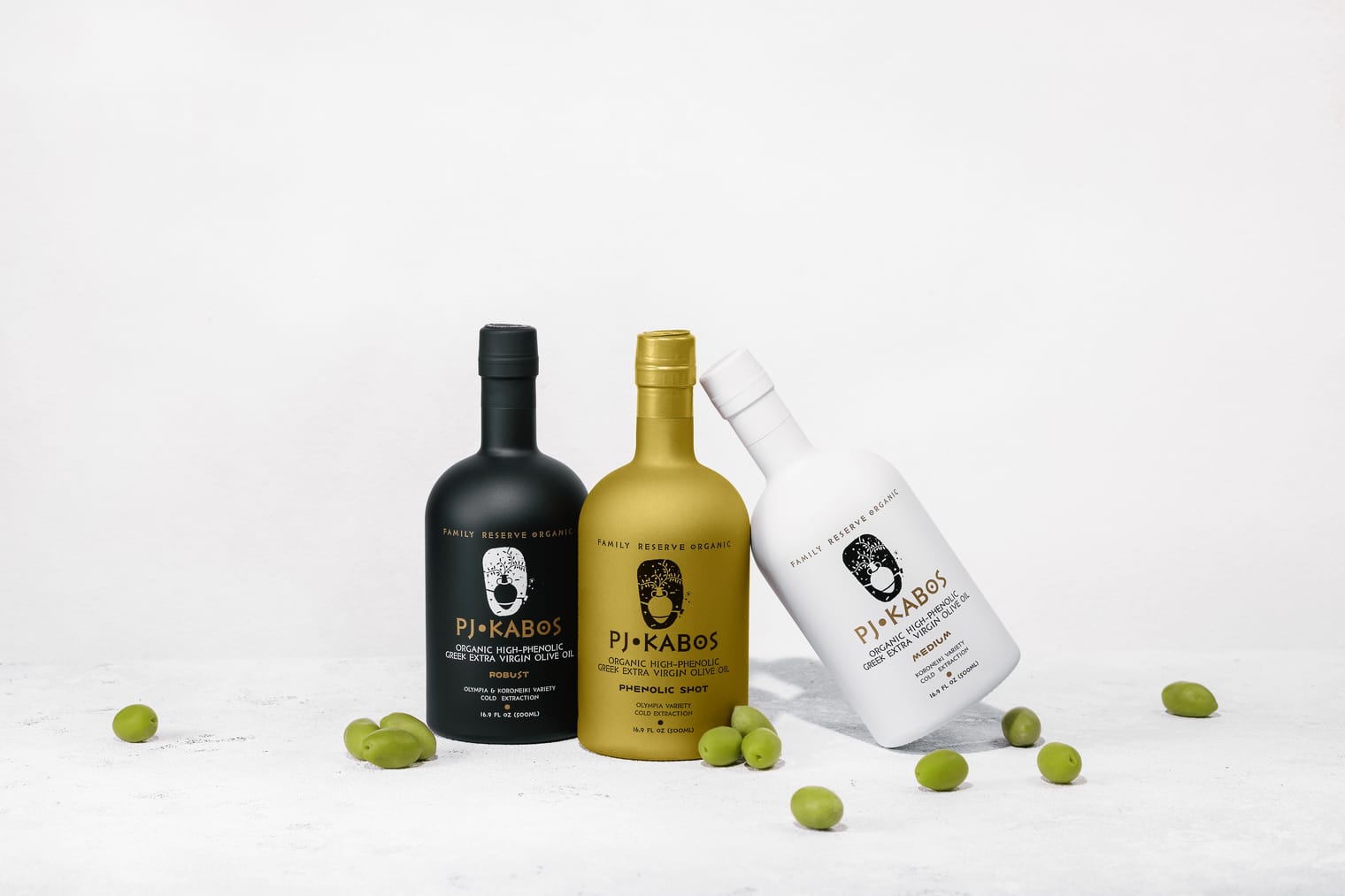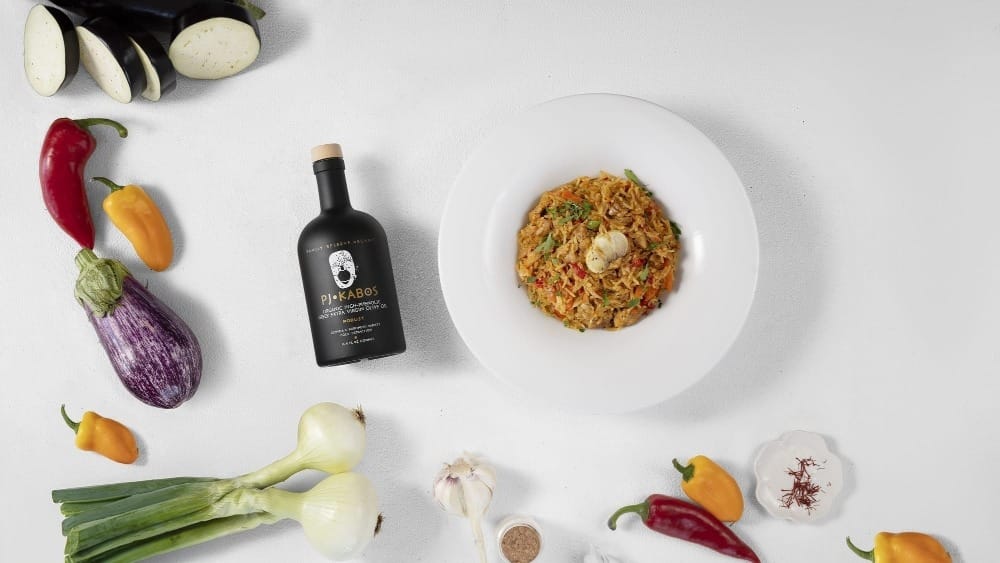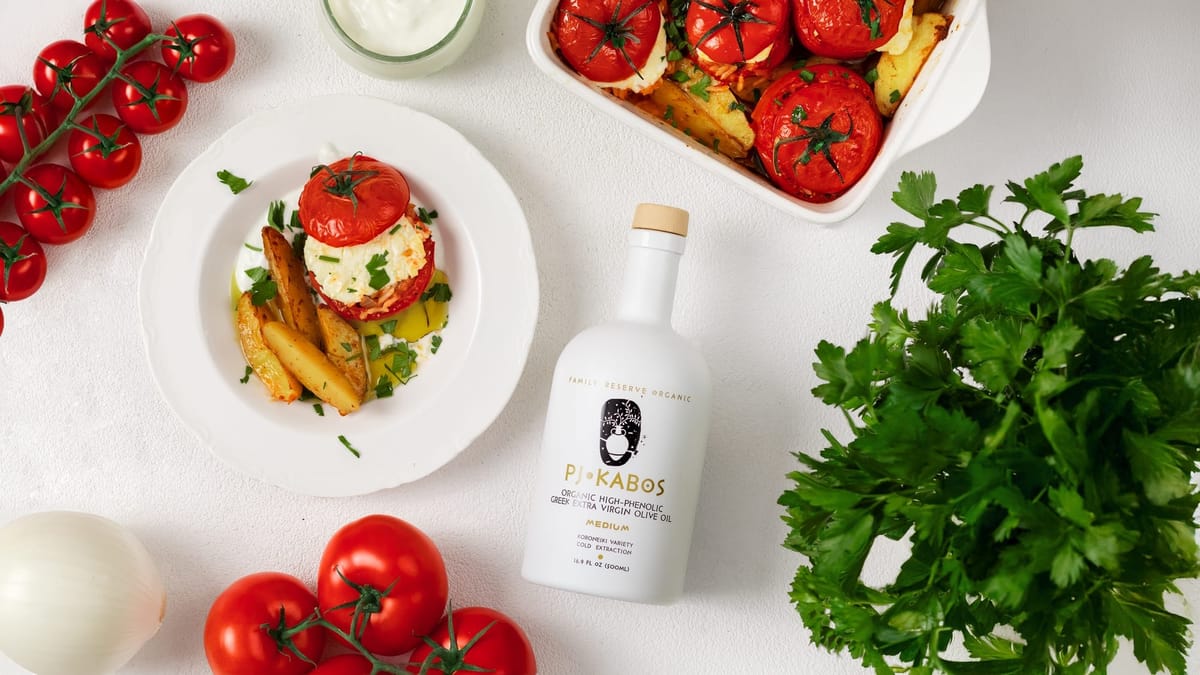
Nightshade Family
Tomatoes (Solanum lycopersicum) are part of the nightshade family, known botanically as Solanaceae. This botanical family includes a range of plants often characterized by alkaloids, compounds that can have strong effects on the human body. In addition to the tomato, common members of this family include potatoes, eggplants, bell peppers, and hot peppers, as well as genuinely toxic plants like deadly nightshade (Atropa belladonna) and henbane or stinking nightshade (Hyoscyamus niger).
A word about why we don't eat green potatoes: "The alkaloid found in nightshades is solanine. It functions as an insecticide while the plant is growing. Eating too much solanine can make you feel bad. When potatoes turn green, they have more alkaloids in them, and they taste more bitter. That is why people usually recommend throwing out green and/or sprouting potatoes. If you eat green potatoes, you may get sick to your stomach with nausea or diarrhea. You can also get a fever or headache." [1]
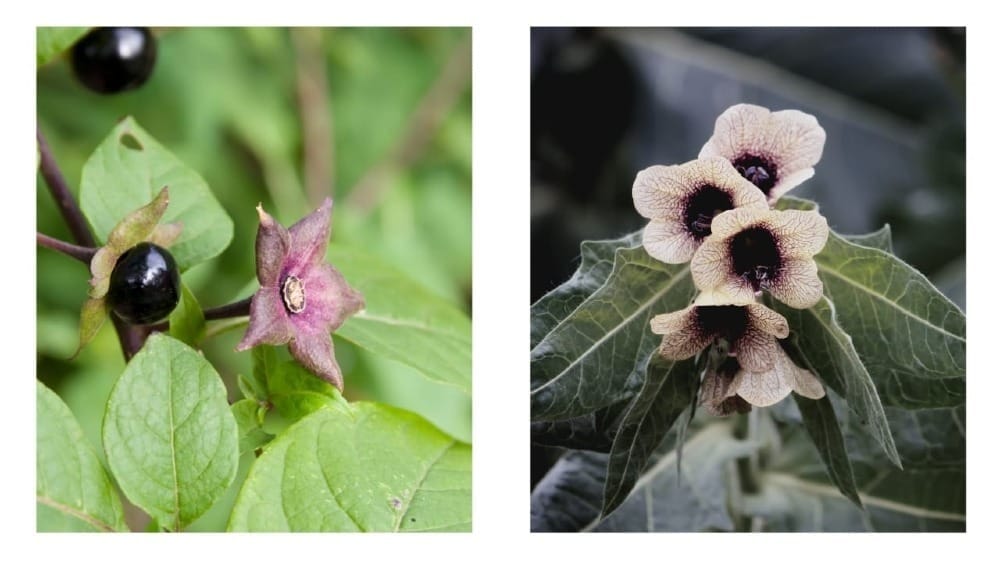
The Tomato Initially Scared the Europeans
Because of this mix of edible and poisonous plants within the same nightshade family, when tomatoes first arrived in Europe from South American via the Spanish explorers in the 16th century, people were wary of eating them. There was widespread suspicion, and many believed the New World plant might even be dangerous or deadly. But as we all know today, the fruit of this plant–the tomato–is not.
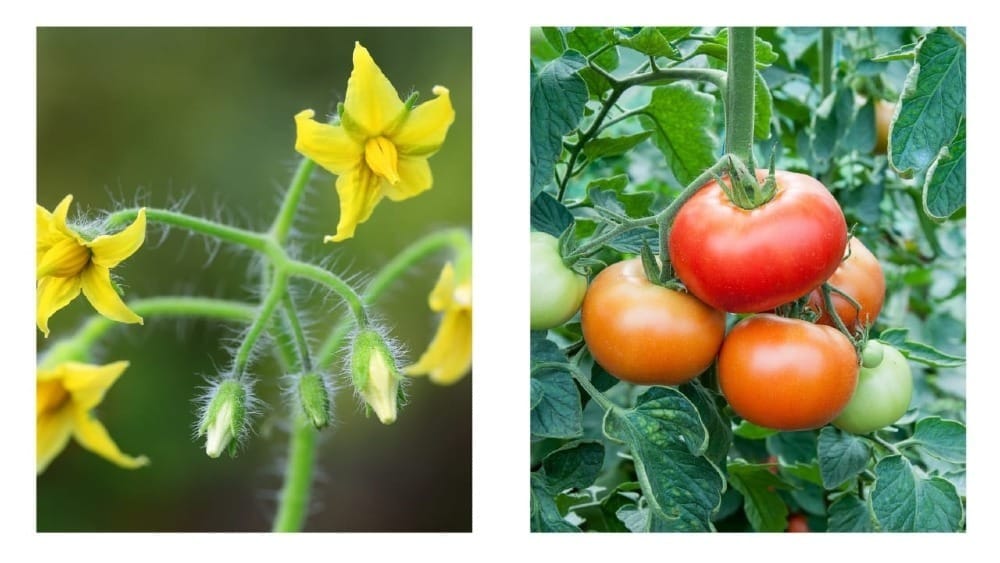
Smart to be cautious, especially for dogs and cats
We must note however, that when tomatoes were first introduced to Europe, people were correct to treat them with caution. Tomato stems, leaves, and unripe green tomatoes contain compounds called tomatine and solanine, both typical of nightshades. In large amounts, these compounds can be toxic, causing symptoms like nausea, vomiting, and headaches if ingested. However, the toxicity is generally mild in humans, and it would take consuming a large amount to feel effects.
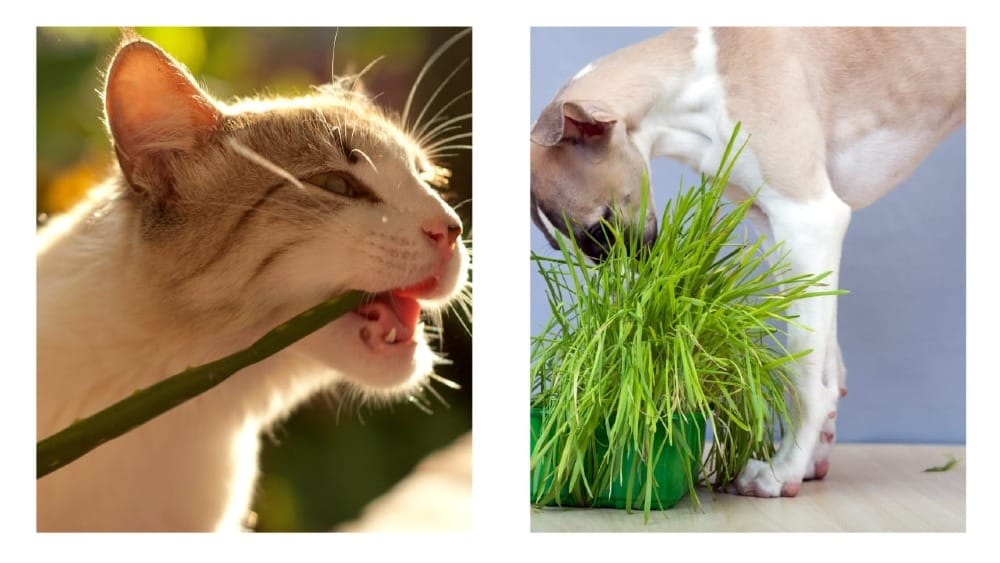
Today, most people avoid eating tomato stems and leaves and are advised to keep them away from pets, as animals like dogs and cats can be more sensitive to these compounds.
"Tomatoes contain more alkaloids in the stem and vine than in the fruit. Studies show that as tomatoes mature, the amount of alkaloids in the part that you eat decreases. So, it is unlikely to eat too many alkaloids from tomatoes, especially if you avoid unripe, green tomatoes." [2]
It's interesting how these toxic compound levels decrease as tomatoes ripen, making fully ripe tomatoes not only safe but also a food that is recommended by healthcare professionals around the world as good to eat due to their health benefits. Hydration is one we all feel when eating a revitalizing fresh Greek Village Salad (topped with PJ Kabos High-Phenolic Extra Virgin Olive Oil, of course) on a hot summer day. But some nightshade plants, including the tomato, have many more good things to offer humans.
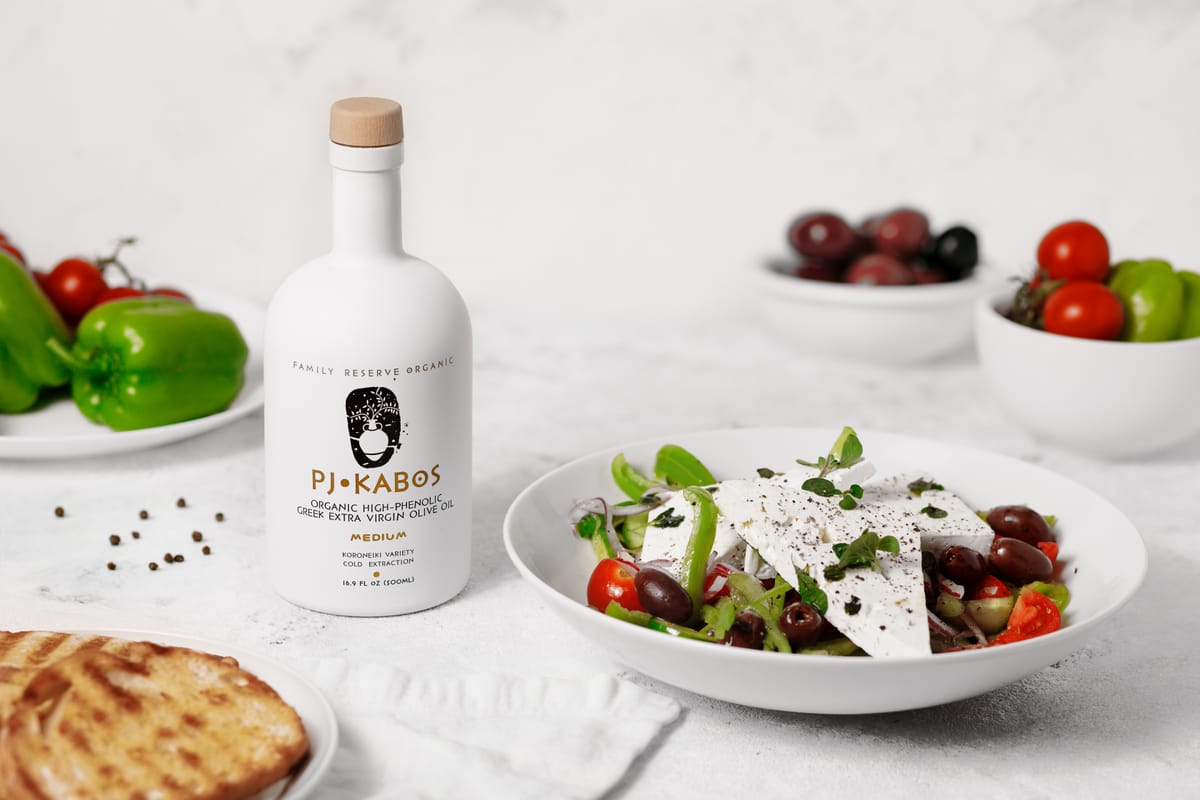
Greek Village Salad using fresh tomatoes.
Benefits of some nightshades
Nightshade plants, like tomatoes, potatoes, eggplants, and bell peppers, are packed with nutrients and offer a range of health benefits. Tomatoes and bell peppers, for instance, are rich in antioxidants, such as vitamin C and lycopene, which help reduce inflammation and support heart health. Eggplants provide fiber and unique antioxidants like nasunin, which may benefit brain function. Potatoes, especially with the skin, are excellent sources of potassium, contributing to blood pressure regulation and heart health.
Many nightshade plants "contain antioxidants that protect cells from damage due to stress. For example, anthocyanin, the antioxidant that gives eggplant its purple color, can reduce the risk of developing cancer, diabetes, and infections. The antioxidant lycopene, found in tomatoes, may decrease the risk of some types of cancer and heart disease. Nightshades also contain vitamins and minerals that contribute to good health, like Vitamin A and Vitamin C. Eating one bell pepper, for example, gives you your daily allotment of Vitamin C." [3]
These are all great vegetables to consume.
The Not So Scary Tomato
Beyond their health benefits, tomatoes are low in calories and high in fiber, ideal for weight management and adding nutritional value to most diets.
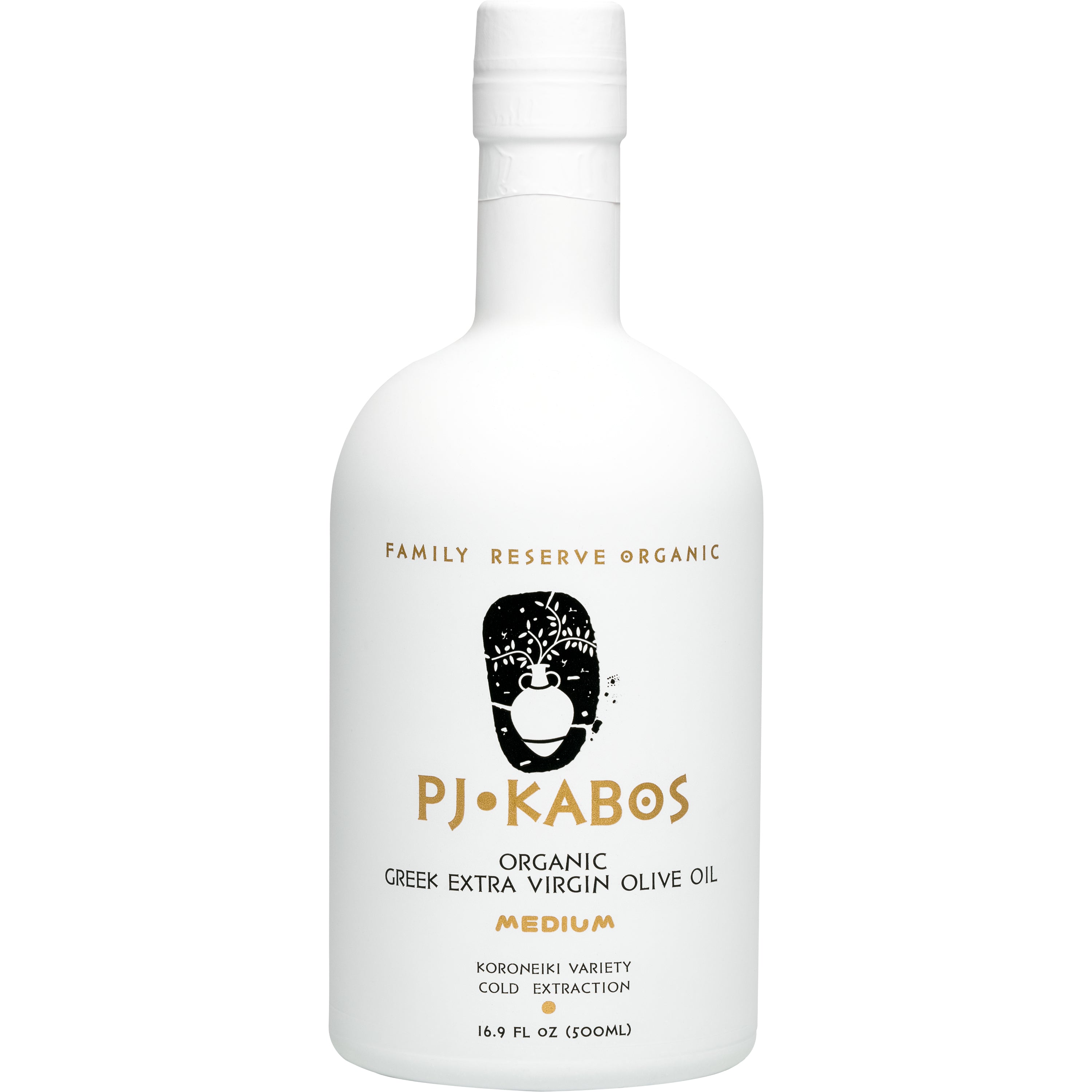
Tomatoes truly shine in salads, adding vibrant colors and bold flavors. In modern Mediterranean cuisine, they’ve become indispensable. Consider the rich tomato-based sauces for pasta, the savory stews like Chicken in Red Sauce, or Braised Green Beans simmered in a tomato base.
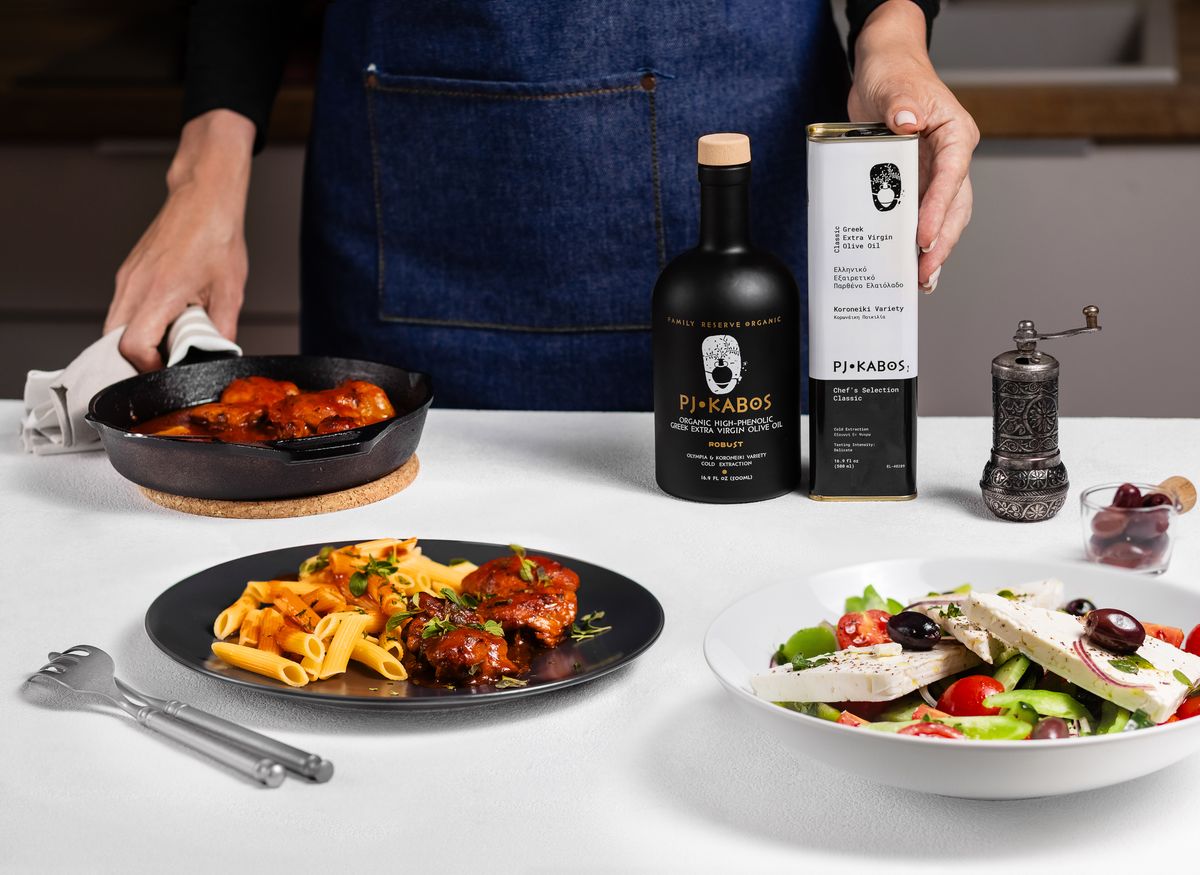
Mediterranean Chicken or Chicken in Red Sauce - the red sauce being tomatoes.
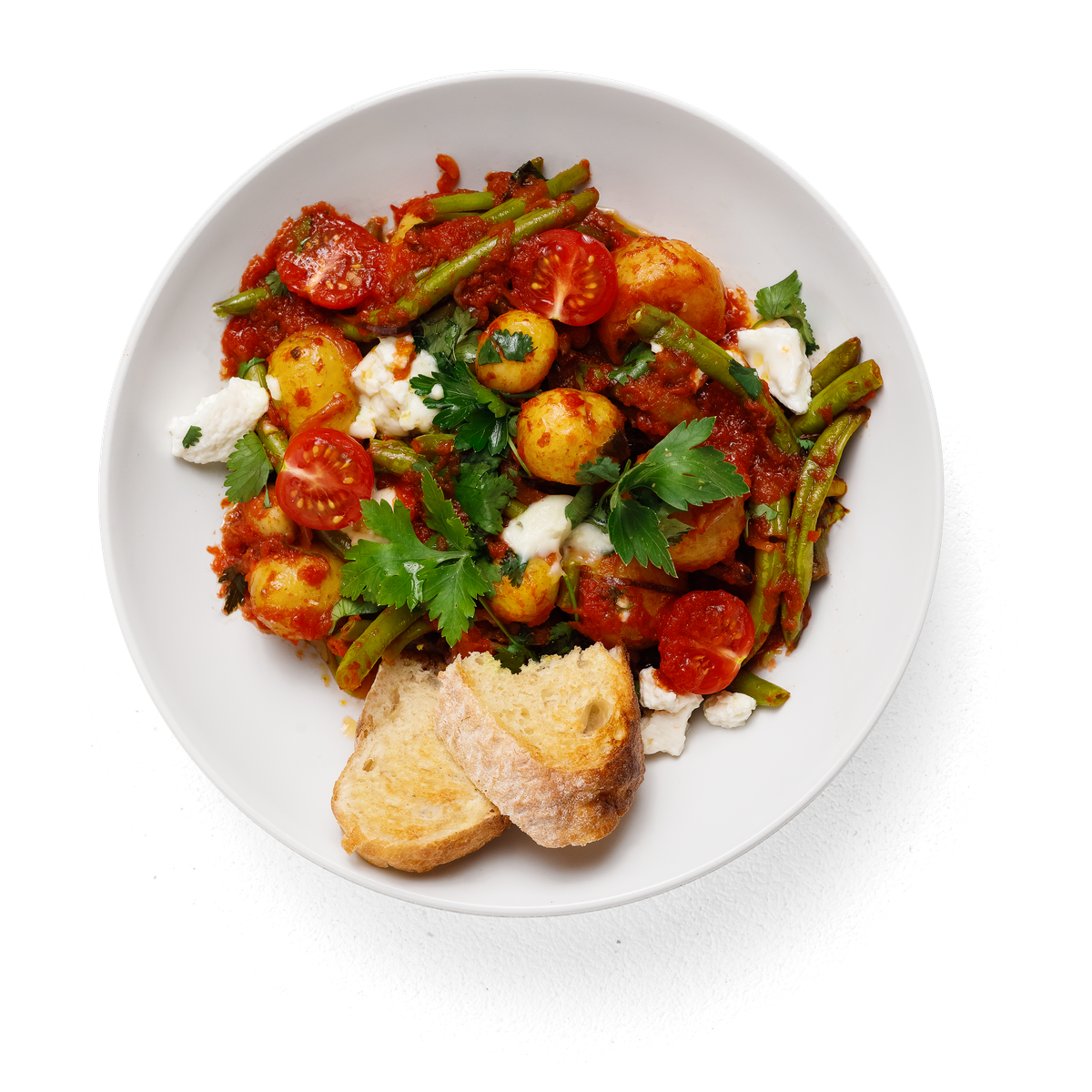
Braised Green Beans mix with a tomato sauce perfectly.
And, of course, Greek stuffed tomatoes—an iconic dish that perfectly captures the essence of Greek and Mediterranean flavors—highlight the not-so-scary tomato as their star ingredient.
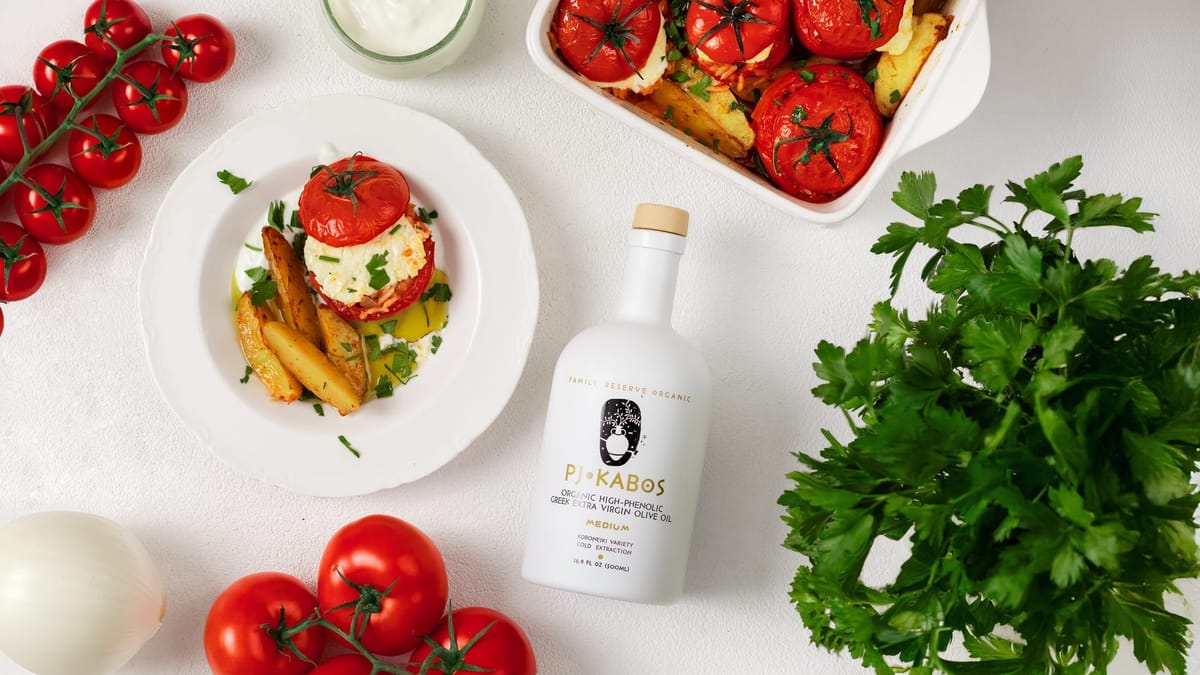
Fresh Harvest 2024/25
High-Phenolic Extra Virgin Olive Oil
from PJ KABOS
PJ Kabos Family Reserve Organic—Phenolic Shot
(Gold Bottle)
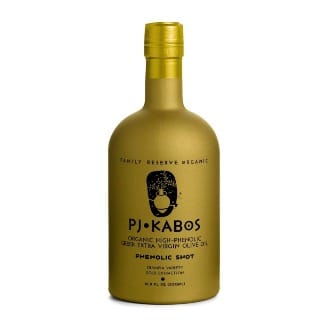
PJ Kabos Family Reserve Organic—"Phenolic Shot," is an award-winning extra virgin olive oil with possibly the highest phenolic content available in a true extra virgin olive oil today. Its intense bitterness and pungency clearly reflect the activity of these polyphenols. Meant to be taken as a shot or may be drizzled over salads, roasted vegetables, toast, fava, etc. to amplify both flavor and health benefits.
PJ Kabos Family Reserve Organic—Robust
(Black Bottle)
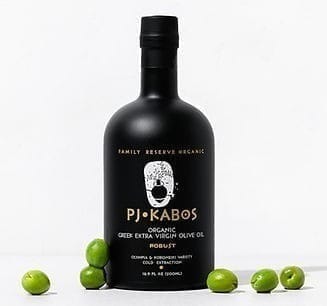
PJ KABOS Family Reserve Organic - Robust, is an extra virgin olive oil that is very high in polyphenols and adds depth, character and great health benefits to every meal.
PJ Kabos Family Reserve Organic—Medium Taste
(White Bottle)
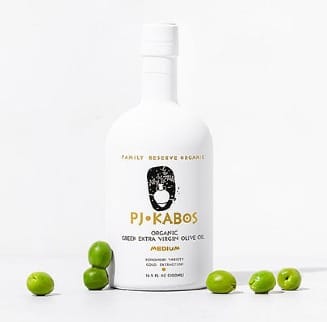
PJ KABOS Family Reserve Organic - Medium, is an extra virgin olive oil that is high in polyphenols and adds a lovely taste and great health benefits to every meal.
PJ Kabos Family Reserve—Medium Taste
(White Tin)
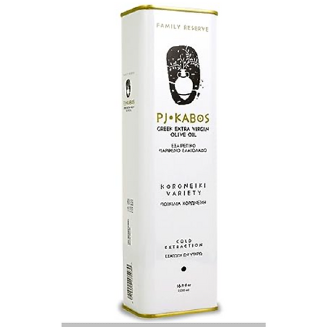
PJ KABOS Family Reserve - Medium, is an extra virgin olive oil in an easy-to-store tin that is high in polyphenols and adds a lovely taste and great health benefits to every meal.
Please enjoy having a look around our websites, pjkabos.com and oliveoil.com, as well as our Amazon Store for more about our many high-phenolic olive oils, recipes, history, etc. And follow along with us on Instagram for photos concerning olive oil production, our groves in Greece, articles about olive oil, family history and more.
PJ Kabos High-Phenolic Extra Virgin Olive Oil: Your Trusted Oil, Straight from Our Table to Yours.
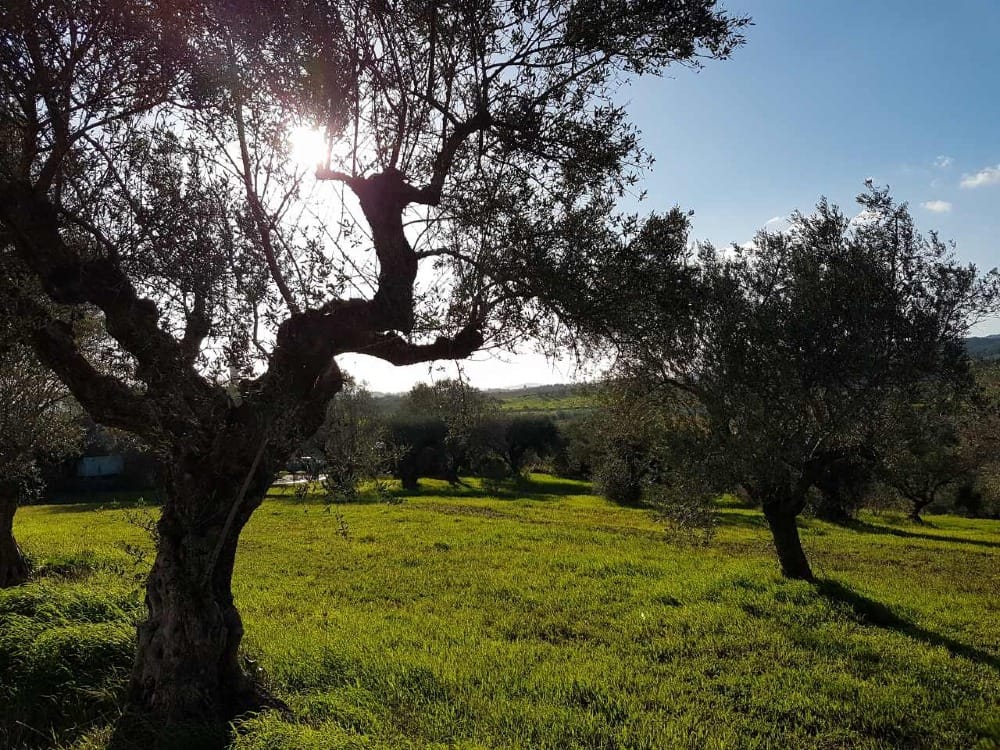
[1] WebMD Editorial Contributor, Medically Reviewed by Kathleen M. Zelman, RD, LD, MPH “What to Know About Nightshade Vegetables.” WebMD, 03/05/2023 published, Retrieved November 1, 2024 from here.
[2] ibid.
[3] ibid.








